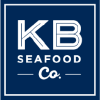Sustainable Seafood Chain of Custody Certification
Accredited certification for MSC, ASC, CSI and Fair Trade

- Home /
- Services /
- Supply Chain Management /
- Sustainable Seafood Chain of Custody Certification



Seafood Certification Team
Certify Your Role in Bringing Sustainable Seafood to Market
The market for certified responsibly managed wild-caught and farmed fish is exploding – $18.6 billion USD in 2024, and expected to nearly double by 2034. Companies involved along the entire seafood chain of custody – from harvest to table – are part of this growing success story. Gain access to higher margin markets and gain competitive advantage by meeting retailer and customer demand.
We are proud to support your efforts every step of the way with top-rated, accredited third-party certification of your fishery, farming, and chain of custody processing and handling operations under the following respected programs:
Marine Stewardship Council (MSC)
The world’s oldest and most widely recognized sustainability certification for wild-capture fish and seafood. Certifications available for fisheries and for the entire chain of custody.
Aquaculture Stewardship Council (ASC)
Responsibly farmed fish and seafood benchmark recognized by retailers everywhere. Certifications available for fish farms, feed, and the entire chain of custody.
Certified Seafood International (CSI) – formerly RFM
Newest standard for environmentally responsibly fishery management plus robust chain of custody, with the ability to identify origin on the ecolabel.
Fair Trade USA – Ethical Seafood
Part of the international Fair Trade movement to ensure that workers and communities benefit from responsible food production, along with strong environmental protections.
Find details about each of these programs by clicking on the page links provided above, or simply contact us here to request more information about any or all of these programs. You can also bundle your certification with a Food Safety audit – ask us for details.
By becoming certified, your company can gain access to higher margin markets, gain competitive advantage by meeting retailer and customer demand, and more effectively manage risk.
We’re here to help
SCS is the world’s premier certification body for sustainable fisheries management, farmed fish, and seafood chain of custody. We were the very first accredited certification body in the sustainable seafood sector, under the MSC program, and have provided robust services for companies around the globe, keeping pace with industry changes and growing international demand. Our expert audit team is prepared to ensure that your certification meets the robust requirements of buyers and stakeholders.
Seafood Certification Team
Featured Clients



To see a list of clients who are certified by SCS Global Services, click here

